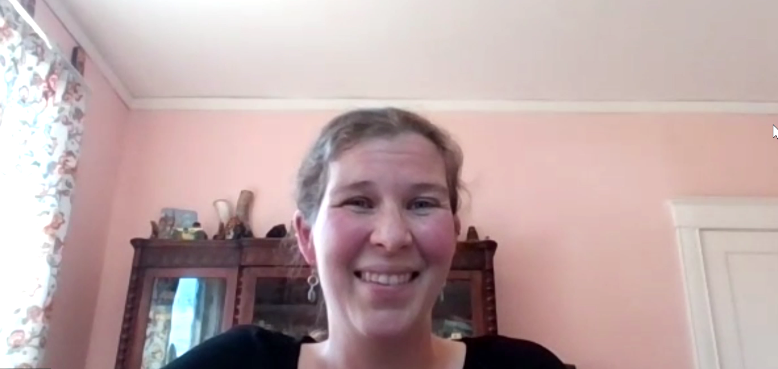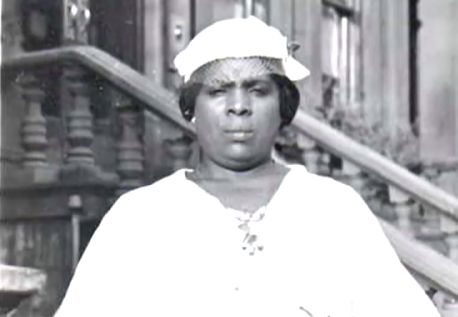
The after-effect of Danish rule caused many uncertainties in the lives of Danish West Indians. Amelia Flood explored how one woman, Leander Hassell Holder, was able to circumvent having official American status and depart St. Thomas to live the rest of her life on the mainland.
During the early 20th century, individuals of the African diaspora were greatly marginalized due to their race and even gender. In 1917, the Danish West Indies went under the rule of the United States as a result of imperial expansion. What followed were ill treatments, restrictive immigration laws, and the ambiguity of the citizenship status of residents.
“The Danes are insistent upon this idea of citizenship, and the U.S., looking at a Black majority territory, is not at all interested in extending full citizenship to these people. To white Danish people in the island, yes. To mixed race or Black peoples, not so much,” said Flood, a doctoral candidate at the Department of American Studies at Saint Louis University.
Consequently, according to Flood’s presentation to the Caribbean Genealogy Library on Saturday, Hassell Holder found herself stranded in the Virgin Islands as a result of the transfer of the Danish West Indies to the U.S.
Leander Hassell Holder was a Danish West Indian who experienced citizenship turmoil after the transfer of the Danish West Indies to the United States of America. (Screenshot from Amelia Flood’s CGL presentation on July 23)
Hassell Holder, a Danish West Indian born on St. Thomas in 1890, moved to Harlem, New York in 1907 to be with her family. She married her husband, Herbert Holder, and a few years later, traveled home to St. Thomas. On her way back to New York in 1924, the Quebec Steamship Company that she tried to venture on would not provide her with a ticket, but would grant her two American-born children tickets. Because Hassell Holder was living in New York during the time of the transfer and lacked documentation for her proof of citizenship, her citizenship status was legally unknown.
“In her mind and in most other islanders’ minds she was an American. However, in the eyes of the U.S. state, in the eyes of the flag steamship company, and many other U.S. collaborators at the time, she was neither citizen nor alien,” said Flood.
Other factors that left her “stranded” in the Virgin Islands included constant changes to immigration laws, the Insular Cases, race and gender stereotypes, language in the Treaty of the Danish West Indies, and notices of legal consequences, with fines up to $1,000, from Naval Gov. James Harrison Oliver to steamship companies that violated the law and transferred improperly documented persons.
The Immigration Act of 1924 or the Johnson-Reed Act was, according to Flood, “the most restrictive U.S. immigration law ever passed by Congress. [It] sets very stringent quotas that virtually eliminate any kind of immigration from certain parts of the world.”
Flood added that, until Hassell Holder “could prove or document her citizenship,” she was not going to be granted a ticket to return to the mainland.
According to Flood’s presentation, Hassell Holder was considered a mulatto and a society woman in Harlem’s DWI community. She was involved in ethnic and philanthropic organizations, such as the Virgin Islands Congressional Council that was headed by Casper Holstein and advocated for Virgin Islands civil liberties and citizenship, and the American West Indian Ladies Aid Society, which was a philanthropic and political group.
“These societies, they might seem like social clubs to us looking at it from the 21st century. However they helped foster a very particular distinct Virgin Islander identity in the West Indian diaspora,” Flood said.
“She wasn’t just in some social club,” Elanor Holder, one of Hassell Holder’s granddaughters, said during the latter half of the program. “She was fighting and she was doing things.”
In July 1924, Hassell Holder’s husband sent a request to the State Department for a passport for Hassell Holder, and included other documents such a declaration for intention. According to Flood, the visa officer for Hassell Holder’s case responded to her husband and said that a passport or visa are not required for his wife to enter the country.
“However, this State Department instruction carried very little weight on the ground in St. Thomas and did not resolve the problem,” said Flood.
Hassell Holder ultimately was able to return to New York in September 1924, after coming to an agreement with another steamship company to return as a Danish national even if it meant she risked being sent back to the Virgin Islands under the Johnson-Reed Act.
“She completely circumvents the racist intent of Johnson-Reed, to keep people like her off the U.S. mainland and out,” said Flood.
In February 1927, Hassell applied for a petition for naturalization to prevent any further obstruction to her passages and became a U.S. citizen.
“Diasporic islanders still encounter[ed] these problems up until 1931 with the passage of the Virgin Islands Native Act, because you had multiple people encounter these travel snafus and it became such a problem that then Gov. Pierson and the civilian regime took it to Congress,” Flood said.
Hassell Holder’s experience displays one complexity the transfer of the Danish West Indies had on residents in the territory.
Elanor Holder highlighted her grandmother and the generations of women before by saying that “they fought imperialism and racism in their own way. And it was so powerful how she [Hassell Holder] was able to turn its system on its head … It’s just those little things that you do to fight the system.”






